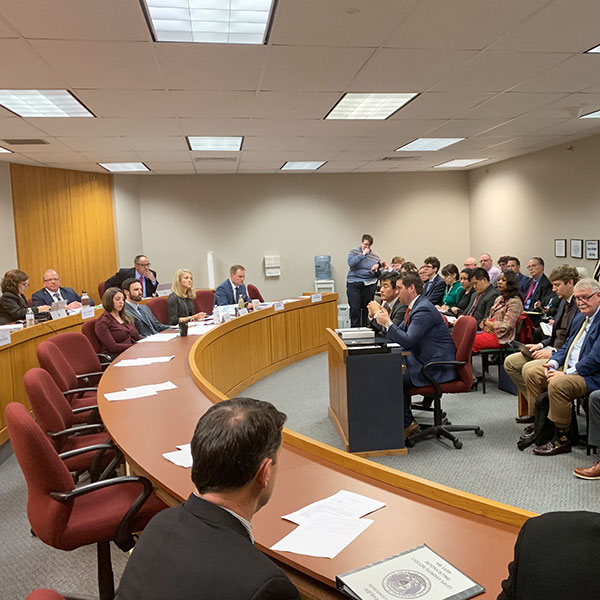When College is a Possibility for All
“Those of us working to improve child well-being often have setbacks, but you just keep going,” says Michelle Witthaus, member of the Missouri Child Development Account Coalition. Legislation that the Missouri Child Development Account Coalition advocated for – which would support college savings for low-to-moderate income children in Missouri – was in its final stages when the pandemic hit.
“We were feeling really positive about it,” says Witthaus. “The bill had passed through two committees in the House nearly unanimously. If it was approved in the House it would have headed to the Senate with bipartisan support. That was in March, the week before everything shut down.” Now, she says, the process will likely start over with the 2021 legislative session. “Things moved quickly due to a few early advocates – including the state Treasurer, Scott Fitzpatrick, who championed the bill – we’ll have to be even more diligent now in maintaining momentum.”
YouthBridge was one of the first supporters, she says, providing critical funding for advocacy efforts through a Think Big for Kids grant of $35,000. “We really could not have seen this initiative take off like it did without YouthBridge’s belief and responsiveness.”
Work on a Child Development Account (CDA) policy for Missouri began in 2018 with the formation of a coalition of like-minded organizations and experts on CDA policy. A few of the current partners include Parents as Teachers, City of St. Louis Treasurer Tishaura Jones, Missouri Budget Project, Forward through Ferguson, and Beyond Housing. Recognizing the broad economic, health and social benefits of a college education for both individuals and the community – and the unattainability of post-secondary education for many lower income families – the CDA Coalition has proposed legislation that would provide an automatic initial seed deposit into a long-term college savings account for every baby born in the state of Missouri. The account would be managed by MOST, Missouri’s existing education savings plan, and allow for additional deposits at significant childhood milestones by the state or non-governmental organizations. Parents would be able to opt out of the program, if they wish.
“It’s important to make this a statewide policy, as poverty and high needs span both our rural and urban counties,” says Witthaus, “and in some of the state’s areas of highest need, college attainment rates are less than 11%.” A statewide strategy also establishes a more sustainable funding and operational model, she says. If passed, Missouri would only be the eighth state to enact CDA legislation.
In addition to being sound policy (research demonstrates that savings programs like CDAs can help reduce poverty), Witthaus says they give families hope for the future. “Parents are more likely to start their own account for their child because they have positive expectations for their education, and children with college savings have better academic achievement because they perceive college as a real possibility.”
To follow the progress of the CDA Coalition, visit http://missouricda.org/.
Pictured: Missouri Treasurer Scott Fitzpatrick and Rep. Jonathan Patterson testify before the House Rules Committee as members of the Missouri Child Development Account Coalition prepare their testimony, February 17, 2020.
